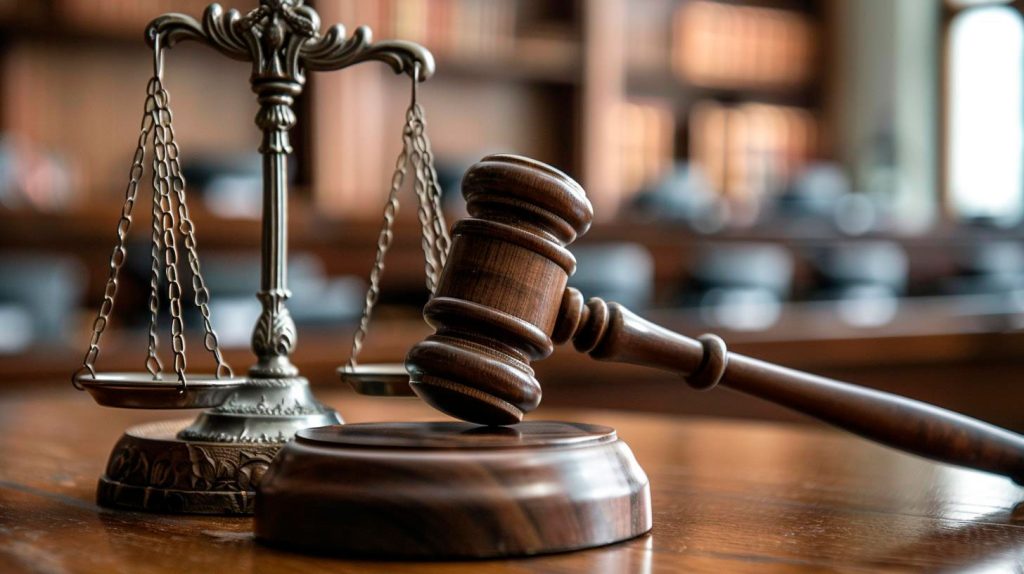
Step-by-Step Guide to Obtaining Your Credit Report
In this guide, we will walk you through the process of obtaining your credit report step by step.
Step 1: Understand the Importance of Your Credit Report
Before diving into how to obtain your credit report, it is essential to understand why it is important. Your credit report contains information about your credit history, including your payment history, outstanding debt, and any accounts that have been sent to collections. Lenders use this information to determine your creditworthiness and decide whether to approve your loan application. By regularly checking your credit report, you can catch any errors or fraudulent activity early and take steps to correct them.
Step 2: Know Your Rights Under the Fair Credit Reporting Act
The Fair Credit Reporting Act (FCRA) is a federal law that regulates how credit reporting agencies collect, use, and disseminate consumer credit information. Under the FCRA, consumers have the right to obtain a free copy of their credit report from each of the three major credit reporting agencies – Equifax, Experian, and TransUnion – once every 12 months. You can request your free credit reports online at AnnualCreditReport.com, by phone, or by mail.
Step 3: Review Your Credit Report for Errors
Once you have obtained your credit report, carefully review it for any errors or inaccuracies. Common errors on credit reports include incorrect personal information, accounts that do not belong to you, and late payments that have been incorrectly reported. If you find any errors, it is essential to dispute them with the credit reporting agency to have them corrected. This can be done online, by phone, or by mail.
Step 4: Monitor Your Credit Report Regularly
Monitoring your credit report regularly is essential to staying informed about your financial standing and catching any fraudulent activity early. In addition to obtaining your free annual credit reports, you can also sign up for credit monitoring services that will alert you to any changes in your credit report, such as new accounts opened in your name or a sudden drop in your credit score.
Step 5: Take Action to Improve Your Credit Score
If you find that your credit report contains negative information, such as late payments or accounts in collections, it is essential to take steps to improve your credit score. This may include paying off outstanding debts, making all of your payments on time, and keeping your credit card balances low. Over time, these actions can help improve your credit score and increase your chances of qualifying for better loan terms and lower interest rates.
Obtaining your credit report is an essential step in managing your finances and ensuring that your credit history is accurate and up to date. By following the steps outlined in this guide, you can take control of your financial health and make informed decisions about your credit. Remember, knowledge is power when it comes to your credit report, so be proactive and stay informed.
Correcting Inaccuracies on Your Credit Report: Taking Action to Protect Your Financial Future
Inaccuracies on your credit report can have a negative impact on your credit score, which is why it is important to take action to correct any errors as soon as possible.
According to a recent study by the Federal Trade Commission (FTC), 1 in 5 consumers have errors on their credit reports that could affect their credit scores. These errors can range from simple mistakes, such as incorrect personal information, to more serious issues, such as accounts that do not belong to you or fraudulent activity. Regardless of the nature of the error, it is important to address it promptly to protect your financial future.
Identifying Inaccuracies on Your Credit Report
The first step in correcting inaccuracies on your credit report is to review your credit report closely. You are entitled to one free credit report from each of the three major credit bureaus – Equifax, Experian, and TransUnion – every year. Take advantage of this opportunity to check for any errors that may be negatively impacting your credit score.
- Check for inaccuracies in personal information, such as your name, address, and social security number.
- Review all accounts listed on your credit report to ensure they belong to you.
- Look for any late payments, collections, or other negative items that may be inaccurate.
Taking Action to Correct Errors
If you find inaccuracies on your credit report, it is important to take action to correct them. The Fair Credit Reporting Act (FCRA) gives you the right to dispute any inaccurate information on your credit report and requires credit bureaus to investigate and correct errors within 30 days.
Here are some steps you can take to correct errors on your credit report:
- Write a letter to the credit bureau explaining the inaccuracies and providing any supporting documentation.
- Include copies of any documents that support your dispute, such as receipts, canceled checks, or account statements.
- Keep a record of all communication with the credit bureau, including copies of letters and any responses received.
The Benefits of Correcting Inaccuracies on Your Credit Report
Correcting inaccuracies on your credit report can have a positive impact on your credit score and overall financial health. By ensuring that your credit report is accurate, you can:
- Improve your credit score and increase your chances of getting approved for loans and credit cards.
- Avoid paying higher interest rates due to a lower credit score.
- Protect yourself from identity theft and fraudulent activity.
As a law blogger for a company that provides lawyer services, I cannot stress enough the importance of taking action to correct inaccuracies on your credit report. By reviewing your credit report regularly, identifying any errors, and taking steps to correct them, you can protect your financial future and improve your credit score. Remember, your credit score is a key factor in your financial life, so it is essential to keep it accurate and up-to-date.
Don’t hesitate to take action to correct inaccuracies on your credit report. Your financial future depends on it.
Tips for Reviewing and Analyzing Your Credit Report for Errors
In this blog post, we’ll provide you with some tips on how to effectively review and analyze your credit report for errors.
1. Request a Copy of Your Credit Report
The first step in reviewing your credit report is to request a copy from each of the three major credit bureaus – Equifax, Experian, and TransUnion. You are entitled to one free copy of your credit report from each bureau every year, which you can obtain through AnnualCreditReport.com. Reviewing reports from all three bureaus is important because the information may vary between them.
2. Check for Personal Information Errors
Once you have your credit reports, carefully review them for any errors in your personal information. This includes your name, address, social security number, and employment information. Incorrect personal information could be a sign of identity theft or a simple mistake that needs to be corrected.
3. Look for Errors in Account Information
Next, review the account information on your credit reports. Check for any accounts that you do not recognize or any accounts that are reported inaccurately, such as incorrect balances or payment history. These errors could have a significant impact on your credit score.
4. Review Credit Inquiries
Another important aspect of your credit report to review is the list of credit inquiries. This section shows all the times your credit report was accessed by lenders or credit card companies. If you see inquiries that you do not recognize, it could be a red flag for potential fraud.
5. Dispute Any Errors
If you find any errors on your credit report, it’s crucial to dispute them with the credit bureau reporting the incorrect information. You can do this online, by mail, or over the phone. The credit bureau is required to investigate the disputed item within 30 days and remove it if found to be inaccurate.
6. Monitor Your Credit Regularly
After reviewing and disputing any errors on your credit report, it’s essential to monitor your credit regularly. You can sign up for credit monitoring services or use free credit monitoring tools to keep an eye on any changes to your credit report. This can help you catch errors or potential fraud early on.
7. Seek Legal Advice
If you have trouble resolving errors on your credit report or if you believe you are a victim of identity theft, it may be beneficial to seek legal advice. A lawyer with experience in consumer rights and credit reporting laws can help you navigate the process of disputing errors and protecting your credit.
Reviewing and analyzing your credit report for errors is a critical step in maintaining good credit health. By regularly checking your credit reports, disputing any inaccuracies, and monitoring your credit, you can ensure that your credit score is accurate and up-to-date. Remember to seek legal advice if you encounter difficulties in resolving errors on your credit report.
Understanding the Importance of Regularly Monitoring Your Credit Report
Therefore, regularly monitoring your credit report is key to maintaining a good credit score and ensuring you are not a victim of identity theft or fraud.
What is a Credit Report?
Your credit report is a detailed record of your credit history, including your credit accounts, payment history, and any outstanding debts or delinquencies. It is compiled by credit reporting agencies such as Equifax, Experian, and TransUnion, who gather information from lenders, creditors, and public records. Your credit report plays a significant role in determining your credit score, which is a numeric representation of your creditworthiness.
Why Should You Monitor Your Credit Report Regularly?
Regularly monitoring your credit report is essential for several reasons. Firstly, it allows you to detect any errors or inaccuracies that may be negatively impacting your credit score. By reviewing your credit report frequently, you can identify and dispute any errors with the credit reporting agencies to have them corrected. This can help prevent you from being unfairly penalized with a lower credit score.
Secondly, monitoring your credit report regularly can help you detect signs of identity theft or fraud. If you notice any unfamiliar accounts, inquiries, or suspicious activity on your credit report, it could be an indication that someone has stolen your identity and is using your information for fraudulent purposes. By catching these issues early, you can take immediate steps to protect yourself and prevent further damage to your credit.
The Benefits of Regular Credit Monitoring
There are several benefits to regularly monitoring your credit report. By staying on top of your credit history, you can take proactive steps to improve your credit score and increase your chances of being approved for loans and credit cards. Additionally, monitoring your credit report can help you identify any potential issues before they escalate, saving you time, money, and stress in the long run.
- Identify errors or inaccuracies on your credit report
- Detect signs of identity theft or fraud
- Improve your credit score and creditworthiness
- Prevent future financial problems
According to recent statistics, around 1 in 4 Americans have errors on their credit reports that could affect their credit scores. Additionally, identity theft affects millions of people each year, resulting in billions of dollars in financial losses. By monitoring your credit report regularly, you can protect yourself from these risks and ensure that your financial information is accurate and secure.
How to Monitor Your Credit Report
There are several ways to monitor your credit report, including obtaining free copies of your credit report from each of the major credit reporting agencies once a year. You can also sign up for credit monitoring services that provide real-time alerts for any changes to your credit report, such as new accounts opened in your name or inquiries made on your credit.
It is important to review your credit report from all three credit bureaus regularly, as each bureau may have different information and errors. By comparing your credit reports from Equifax, Experian, and TransUnion, you can ensure that your credit information is accurate across all platforms.
Regularly monitoring your credit report is a vital part of maintaining good financial health. By staying informed about your credit history, you can protect yourself from errors, fraud, and identity theft, while also taking proactive steps to improve your credit score and creditworthiness. With the increasing prevalence of cyber threats and financial fraud, monitoring your credit report is more important than ever to safeguard your financial future.
Don’t wait until it’s too late – start monitoring your credit report today and take control of your financial well-being!













Do credit bureaus always have accurate information on their reports?
Disputing inaccurate information on your credit report can be a lengthy process, but it is crucial to ensuring your credit score is an accurate reflection of your financial history.
Omg, I just checked my credit report and there’s a mistake on there. What should I do next?
Yo, I heard you can get your credit report for free once a year, is that true? How do I go about getting it?
It’s important to regularly review your credit report to catch any errors or signs of identity theft early.
Credit bureaus strive to maintain accurate information on credit reports, but errors can occur. It’s important to review your report regularly and dispute any inaccuracies you find.
You have the right to dispute inaccurate information on your credit report under the Fair Credit Reporting Act. If you find a mistake, you can contact the credit bureau and the creditor to have it corrected.
So, like, what kind of information is on a credit report exactly?
It’s important to check your credit report regularly to monitor for identity theft or other inaccuracies that could impact your credit score.
Checking your own credit report does not impact your credit score, as it is considered a soft inquiry. Only hard inquiries, such as applying for credit, can affect your score.
Requesting your credit report is a simple process that can be done online, by phone, or by mail. It’s important to review your report for accuracy and address any discrepancies promptly.
If you find an error on your credit report, the first step is to contact the credit bureau in writing, providing documentation to support your dispute. The credit bureau must investigate the matter within 30 days and provide you with the results.
Can you dispute things on your credit report if they’re not accurate? How does that work?
Obtaining your credit report is as simple as requesting it from one of the three major credit bureaus: Equifax, Experian, or TransUnion. You are entitled to one free report from each bureau every 12 months.
I’ve been hearing a lot about identity theft lately, is checking your credit report the best way to catch it early?
Is it true that checking your own credit report doesn’t hurt your credit score?
The information on your credit report includes your payment history, credit utilization, account balances, and personal information such as your name and address.
I don’t even know where to start when it comes to getting my credit report. Can someone break it down for me?
I’ve heard about credit monitoring services, are they worth it?
Credit monitoring services can be helpful in alerting you to changes on your credit report, but be sure to research and choose a reputable service.
How long does it take to get your credit report once you request it?